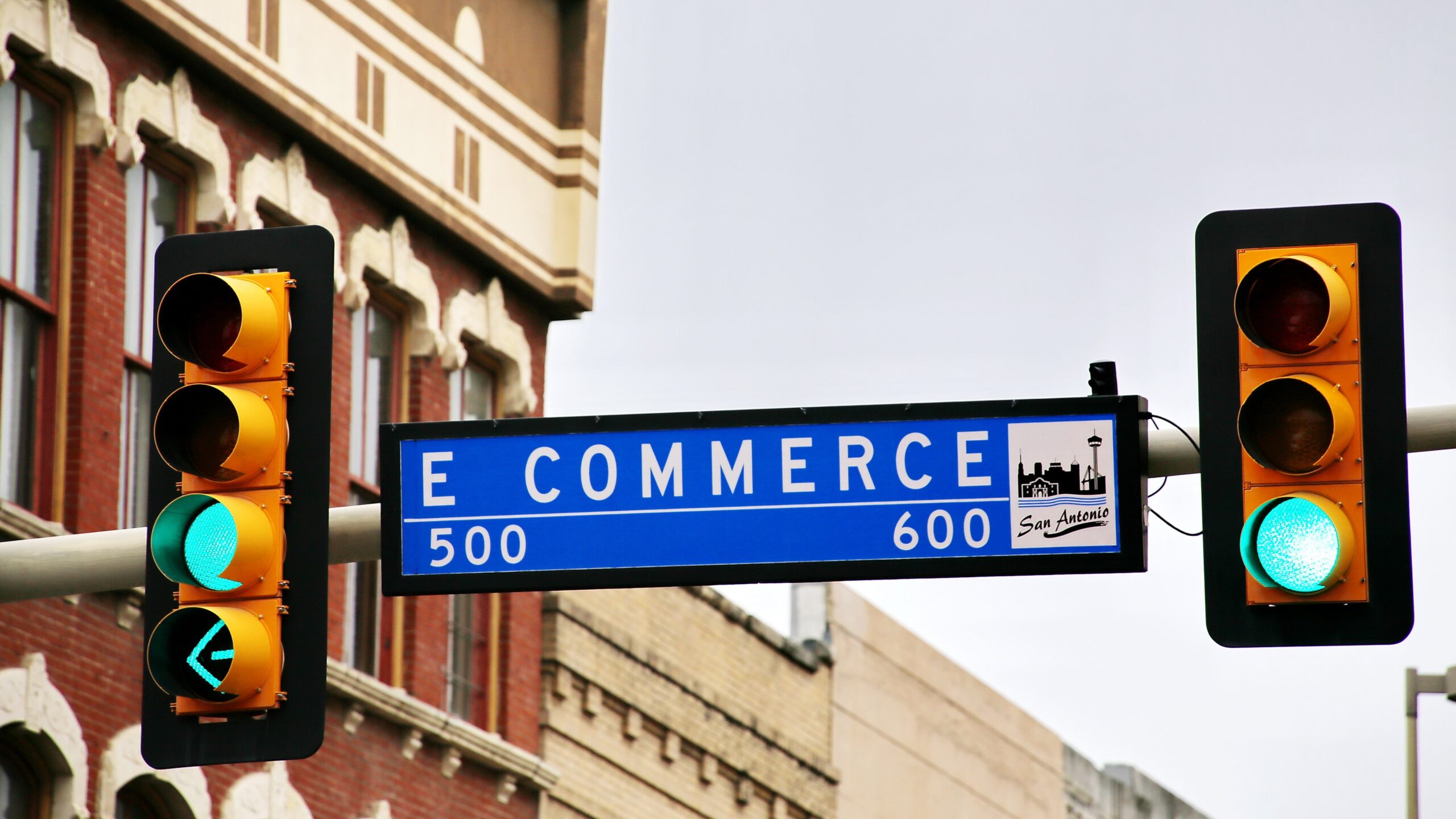Ecommerce has established itself as a dominant force in the global marketplace, with a universal reach that transcends geographic location. However, as its prominence continues to grow, so do the complexities and risks associated with online transactions. This calls into question the effectiveness of traditional security measures in protecting both companies and their customers from threats such as data breaches, fraud and counterfeit products. An emerging answer to these challenges lies in blockchain-technologie's ability to provide far superior security measures. Dive in as we dissect the five ways blockchain promises to improve ecommerce security and transform the industry in the process.
Understanding Blockchain Technologie and ecommerce
Blockchain is essentially a decentralized database that contains records, called blocks, that are connected together as a chain, hence the name 'blockchain'. Each block contains information about a transaction, and once it is recorded, it is virtually impossible to change this information afterwards. This immutability feature, combined with the transparency and security of the records in the blockchain, makes it an attractive solution for numerous industries, including ecommerce.
The ecommerce sector, which relies on online transactions, will benefit greatly from blockchain technologyologie. Currently, ecommerce uses traditional digital systems to store and track transactions, many of which are vulnerable to security breaches and fraud. Nevertheless, blockchain offers a means to revolutionize the ecommerce by providing a more secure, reliable and efficient method for conducting online transactions.
The decentralized nature of blockchain technology eliminates the need for intermediaries, reducing costs associated with fees and transaction times. Moreover, it strengthens trust between parties thanks to the transparent and immutable transaction data. While blockchain is still relatively new to the ecommerce world, its potential to significantly improve security and reliability is clear.
The importance of (Blockchain-technologie) security in ecommerce
With billions of dollars worth of transactions taking place online every day, security has become a priority in the ecommerce industry. Businesses must ensure that their systems are secure to increase trust with their customers and prevent reputational and financial damage from data breaches or fraudulent transactions.
From the customer's perspective, assurance that their data is secure is critical. They need confidence in knowing that their personal data and transactions are safe from hacking and fraud. Therefore, investments in highly secure systems are not optional for ecommerce companies; it is essential to maintaining customer trust and business integrity.
But the need for security extends beyond transactions. It plays a critical role in securing intellectual property and sensitive business information, supply chains and meeting regulatory standards. Any security compromise in these areas could result in significant financial losses and reputational damage. Increasing reports of high-profile data breaches only exacerbate these concerns.
Limitations of traditional security measures for ecommerce
Traditional security measures for ecommerce have been fundamentally centralized. The data, transactions and other critical assets are stored in one location or system. While these centralized systems may have provided some level of security, they are not infallible. They are often sensitive to both internal and external threats.
One of the main limitations of these conventional systems is their vulnerability to cyber attacks. By concentrating data and resources in a centrale location, hackers gain complete control once they penetrate the core, leading to massive data breaches. Furthermore, transaction fraud becomes easier because malicious parties can manipulate the data within a centralized server.
Traditional ecommerce models also struggle with transparency. Because the data isn't readily available to all parties in a transaction, it makes it easier for fraud, counterfeiting, and other questionable activities to take root. The limited transparency causes problems for both customers and companies, who need accurate information to make informed decisions and build trust.
The five ways by which the security of ecommerce improves through Blockchain-technologie
Blockchain-technologie presents a radical shift from centralized models, in ways that decisively address the limitations inherent in traditional ecommerce. Specifically, blockchain improves ecommerce security through transaction verification processes, fraud prevention measures, data protection and privacy, supply chain transparency, and centralization.
Transaction verification process
In a blockchain-powered ecommerce platform, before a transaction is added to the blockchain, it must be validated by various nodes or computers in the blockchain network. The verification process is rigorous and based on pre-established algorithms, making fraudulent transactions virtually impossible.
This process also ensures that once a transaction has been added to the blockchain, it cannot be changed or deleted. The immutability feature protects against subsequent fraud or manipulation. Thus, the robust verification process significantly improves payment security for ecommerce transactions, strengthening consumer trust and overall transaction integrity.
Fraud prevention
Blockchain-technologie is inherently resistant to fraud. While fraudsters can deceive individual entities, it is challenging to manipulate a network of nodes that must reach consensus before a transaction can be validated. This consensus mechanism decentralises control, making it more difficult for fraudulent activities to succeed.
Furthermore, transactions recorded on the blockchain are transparent to all parties involved, making obscure activities quickly noticeable. By enabling traceability of every transaction, blockchain provides a layer of accountability and deterrence for fraudulent behavior.
Data protection and privacy
Blockchain-technologie uses cryptographic hashes, which provide an extra layer of security. The data in each block is hidden via a complex mathematical algorithm, and only those with the correct decryption key can interpret the information.
Furthermore, once data is stored in a blockchain, it is immutable. This feature prevents unauthorized users from modifying or tampering with stored information, ensuring data integrity. The decentralization of data also means that even if a single node is compromised, the rest of the blockchain remains secure, ensuring the data protection and privacy be further strengthened.
Supply chain transparency
Blockchain can increase transparency in ecommerce's supply chain by providing a real-time, end-to-end view of product movements. It makes it possible product traceable from the point of origin to the end consumer, preventing counterfeiting and guaranteeing the authenticity of the product.
Additionally, this transparency can resolve supply chain disputes and errors more efficiently by providing an accurate, unchanging record of transactions. Mitigating such risks increases consumer confidence and enhances business credibility.
Decentralization for enhanced security
Thecentralization is one of the core features of blockchain technologyologie. Instead of storing data in one location, blockchain spreads it across a network of nodes, making it less vulnerable to cyberattacks. In the event that a node is compromised, the blockchain network can continue to function due to the redundancy provided by the distributed design.
This distributed approach also overcomes the risk of a single point of failure – a problem common in traditional ecommerce systems. By decentralizing the data, blockchain-technologie promotes a more robust and stable ecommerce platform where data corruption, server outage or data loss is virtually impossible.
Conclusion
As the crypto adage goes: “Don't trust, verify.” This essence, encapsulated in the DNA of blockchain technologie, paves the way for a more secure ecommerce ecosystem. By integrating blockchain into their operations, ecommerce companies can achieve improved transaction security, reduce fraud, better protect customer data, increase supply chain transparency and eliminate single points of failure.
Understanding and leveraging the security potential of blockchain-technologie is critical as we enter the new era of digital commerce. If ecommerce is to continue its astronomical growth trajectory and reach more users worldwide, the industry must embrace technologic innovations such as blockchain, which promise not only significant improvements in security, but also a more trustworthy and transparent environment for consumers.














